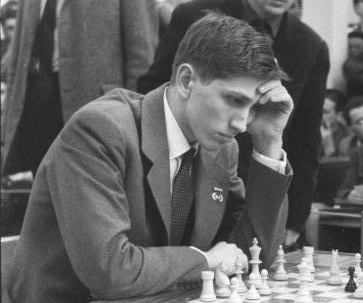By Prarthana Sen
For decades, the Russians have been strong in chess as their leaders went about promoting the game ever since the Bolshevik Revolution of 1917. Chess became a favourite Soviet pastime, with tall political figures like Vladimir Lenin and Joseph Stalin being regular practitioners of the game. The strategic game could be seen providing an intellectual platform or foundation for the communist ideology. Thus, chess came to garner immense political significance and soon became a symbol of national pride.
The Soviet Union went on to produce a string of chess grandmasters such as Mikhail Botvinnik for instance, who went on to be felicitated with the prestigious Order of Lenin- the highest ever civilian honour within the Soviet Union.1 Chess professionals in the Soviet Union lived a life of great privilege and had their travel expenses covered by the government. They also received huge stipends from the Soviet government – an amount much more than the usual Soviet wages of those times.2 In short, chess geniuses were treated as a national asset for all the glory that they brought for the Soviets.
With the onset of time, the Soviet Union became a chess ‘superpower’ and remained unchallenged for several decades. During these years, chess in the Soviet Union reinvented itself as an instrument of propaganda that proclaimed the greatness of Soviet culture during the Cold War years. The Russians may have lagged behind the Americans in terms of military technology and economic capabilities, but in the face-offs that took place over a chessboard, they had always reigned supreme.3
It was only in 1972, that the Soviets had their crown displaced by the 29-year-old American, Bobby Fischer.4 Throughout the late 1920s to the year 1972, spanning well over five decades, the Russian grandmasters held on to the chess world title every year, with the exception of Dutch mathematical genius and chess enthusiast Max Euwe becoming world champion for a period of two years (1935-1937).5 The Soviet Union that once saw its chess victories as proof of its superiority as a political system, went on to be proved wrong.
Fischer facing Spassky on the board symbolised an intellectual and psychological warfare being waged between the Americans and the Russians. The whole world had its eyes locked on a chess board that had just turned into a hotbed of ideological warfare between the capitalist United States and communist U.S.S.R. Following his defeat, Spassky displayed true sportsmanship by giving Fischer a standing ovation.6 Fischer’s victory garnered him immense popularity and he soon became a household name across the United States.
Unlike the Soviet Union, chess was not very popular in the United States and the sport received very little or no media attention. Bobby Fischer’s victory in 1972 changed everything, given its political undertone. The significance of the Spassky-Fischer match went way beyond the chess arena and was made clearly evident by the fact that former National Security Adviser of the United States, Henry Kissinger called up Bobby Fischer so as to persuade him in continuing the chess match against Spassky.7
Chess may be viewed as a zero-sum game since opponents either have to kill or get killed, much like conventional warfare where the ideal way involves neutralising one’s opponent through full-frontal attacks within a limited period of time. The game of chess is clearly strategy-driven and provides for a military-level playing field. Perhaps, due to this very nature of the game, the Spassky-Fischer match found itself as a matter of national concern for the two superpowers that were already at loggerheads with one another.
Author’s Bio: Prarthana Sen is a Research Intern at the Observer Research Foundation
References
[1] Michael A. Hudson, “Storming Fortresses: A Political History Of Chess In The Soviet Union, 1917-1948” (PhD diss., University of California, Santa Cruz, 2013)
https://escholarship.org/content/qt0s71f0cw/qt0s71f0cw.pdf?t=mwkf4z&v=lg
[2] Harold C. Schonberg, Cold War In The World Of Chess, New York Times, 27th September 1981,
https://www.nytimes.com/1981/09/27/magazine/cold-war-in-the-world-of-chess.html
[3] Nick Gillespie, “Garry Kasparov’s Gambit: The greatest chess player in modern history on how the Soviet Union lost to the free world,” Reason 53, no. 7 (2021).
https://law-journals-books.vlex.com/vid/garry-kasparov-s-gambit-878451135
[4] Sixty Years Later, Bobby Fischer’s Game of the Century Continues to Enthrall, The Wire, 17th October 2016,
[5] Andrey Terekhov, A History of Chess in Russia, Chess24, 24th May 2020,
https://chess24.com/en/read/news/a-history-of-chess-in-russia
[6] Brian Jerauld, Throwback Thursday: Under One Condition, Fischer Begins Path To World Championship, US Chess Federation, 18th March 2021,
[7] Dominic Lawson, Has chess got anything to do with war? BBC, 3rd May 2015,
https://www.google.co.in/amp/s/www.bbc.com/news/magazine-32542306.amp
Feature Image: Bobby Fischer in action at Leipzig in 1960. File:Bundesarchiv Bild 183-76052-0335, Schacholympiade, Tal (UdSSR) gegen Fischer (USA) Crop.jpg – Wikipedia
